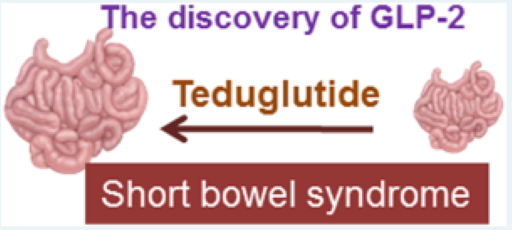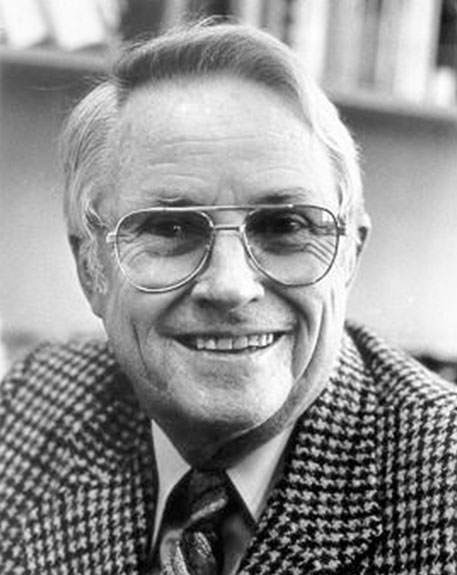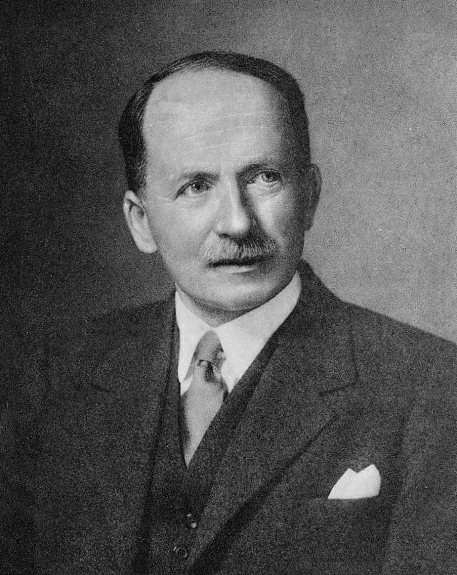2022 INDUCTEE Daniel J. Drucker, MD Evidence-based Medicine & Clinical Trials, Hormones, Digestion
June 23, 1956
(Montreal, Quebec)
MD, University of Toronto (1980)
2025: Fred Conrad Koch Lifetime Achievement Award, Endocrine Society
2025: Warren Triennial Prize, Massachusetts General Hospital
See All AwardsAwards & Honours:
2025: Fred Conrad Koch Lifetime Achievement Award, Endocrine Society
2025: Warren Triennial Prize, Massachusetts General Hospital
2025: Breakthrough Prize in Life Sciences, USA
2025: Frontiers of Knowledge Award, BBVA Foundation, Spain
2025: American Association for Cancer Research - Irving Weinstein Foundation Distinguished Lectureship Award
2024: Fred Conrad Koch Lifetime Achievement Award (The Endocrine Society, USA)
2024: Princess of Asturias Award for Scientific Research (Spain)
2023: VinFuture Special Prize for Innovators with Outstanding Achievements in Emerging Fields, Vietnam
2021: Canada Gairdner International Award
2021: Elected to the National Academy of Sciences (USA)
2020: The Warren Alpert Foundation Prize for Biomedical Research
2020: The Transatlantic Medal of the British Endocrine Society
2020: The Endocrine Society John Baxter Award for Entrepreneurship
2019: The Novo Nordisk Foundation EASD Prize for Excellence in Diabetes Research
2019: The Helmholtz Diabetes Centre Lifetime Achievement Award
2019: The Harrison Medal, Australian Endocrine Society
2019: The Harold Hamm International Prize for Diabetes Research
2018: The Manning Foundation Principal Innovation Award
2018: The Canadian Organization for Rare Disorders Scientific Leadership Award
2017: The Harrington Prize for Innovation in Medicine, ASCI and the Harrington Institute
2017: Rolf Luft Award in Endocrinology and Diabetes Research, Karolinska Institute
2015: Rachmiel Levine Award for Scientific Achievement in Diabetes Research, City of Hope, California
2015: Institute of Medical Sciences Graduate Course Lecturer Award, University of Toronto
2015: Elected Fellow of the Royal Society of London, UK
2015: Appointed Officer of the Order of Canada
2014: Manpei Suzuki International Prize for Diabetes Research, Manpei Suzuki Foundation, Tokyo, Japan
2014: Banting Medal for Scientific Achievement, American Diabetes Association
2013: Oon International Award for Preventive Medicine, Cambridge University School of Medicine, United
2012: The Claude Bernard Medal & Lecture, European Association for the Study of Diabetes
2012: Lloyd S.D. Fogler Award for research excellence, Mt. Sinai Hospital
2012: Elected Fellow of the Royal Society of Canada
2012: CIHR CMAJ Top Achievements in Health Research Award
2010: Banting and Best Diabetes Centre-Novo Nordisk Chair in Incretin Biology
2009:The Endocrine Society Clinical Investigator Laureate Award
2008: Prix Galien Canada award for outstanding pharmaceutical research
2006:Elected to membership in the Association of American Physicians (AAP)
2005: University Health Network Inventor of the Year Award
2004: Canada Research Chair in Regulatory Peptides
2004: Bristol Myers Squibb Freedom to Discover Award for Metabolic Research
2002: Canadian Society for Clinical Investigation Distinguished Scientist Award
1999-2004: MRC Senior Scientist Award
1998: Viktor Mutt Award from the International Society for Study of Regulatory Peptides
1996: William Goldie Prize for academic contributions to Internal Medicine, University of Toronto
1996: Canadian Diabetes Association Outstanding Young Scientist Award
1995: Elected Member, American Society for Clinical Investigation
1994-99:MRC Scientist Award
1993: Richard E. Weitzman Award of the Endocrine Society for Scientific Achievement by a young investigator
1993: Alan Bruce Robertson Young Investigator Award of the Clinical Research Society of Toronto
1990: University of Toronto Department of Medicine Research Award
1989-94: Ontario Ministry of Health Career Scientist Award
1989-94: Appointed Reuben and Helen Dennis Research Scholar in Diabetes Research, Toronto General Hospital
1989: Elected Fellow of the American College of Physicians
1987- 89: Research Scholar of the Medical Research Council of Canada
1986: American Federation for Clinical Research-Outstanding Trainee Award
1984-1987: Centennial Fellow, Medical Research Council of Canada
1984: Student Award for Research, Canadian Society for Clinical Investigation
1983-1984: First Prize, Toronto General Hospital Research Competition
1981-1982: Second Prize, Toronto General Hospital Research Competition
1980: Irving Heward Cameron Gold Medal in Surgery, University of Toronto
1980: Dr. Mitchell F. Kohan Scholarship for special excellence in Internal Medicine, University of Toronto
1979: Elected to membership, Alpha Omega Alpha Medical Society
1977-1979: Crocker Foundation Bursary, Walter F Watkins Scholarship
1976-1977: Walter F Watkins Scholarship Bradshaw Errington Bursary
1975-1976: University of Ottawa Faculty Merit Scholarship Kingdom

The first to identify the actions of GLP-1 and GLP-2, enabling medicines for diabetes, obesity and intestinal disorders

Revealed the potential for gut hormones to achieve dramatic clinical outcomes in the treatment of life-limiting and life-threatening metabolic and intestinal disorders
Short bowel syndrome, a disorder affecting newborns and adults recovering from major intestinal resection, has increased more than two-fold in the last 40 years, reflecting complications in babies born prematurely, and an increase in surgical interventions for severe Crohn’s disease. Dr. Drucker’s discoveries helped to develop teduglutide, a GLP-2-based medication, providing long-term therapy for the treatment of adults and children. Approximately one of every five patients on teduglutide in the real world has completely discontinued intravenous feeding, leading to remarkable improvement in quality of life. Dr. Drucker has also contributed to the development of new classes of therapeutic medications for type 2 diabetes and obesity, prescribed to more than a hundred million patients worldwide and transforming the treatment of metabolic disease. A profoundly gifted laboratory researcher, Dr. Drucker has personally translated advanced scientific discoveries into real-world clinical applications, substantially improving the lives of patients. A much-honoured clinical-scientist at the Lunenfeld-Tanenbaum Research Institute of Mt. Sinai Hospital, and a Professor of Medicine at the University of Toronto, Dr. Drucker’s laboratory studies have revolutionized the treatment of metabolic disorders and exemplify exceptional bench-to-beside translation of scientific research.
Key Facts
Elucidated the role of GLP-1 (glucagon-like peptide 1) in insulin secretion leading to the development of patented medications for the treatment of type 2 diabetes
GLP-1 based medications facilitated weight loss and reduced the incidence of cardiovascular complications extending their application to effective treatment of obesity rivaling outcomes of bariatric surgery
Emerging evidence suggests GLP-1 acting on the brain is neuroprotective and early studies in disorders such as Parkinson’s disease show promise; Phase 3 trials in Alzheimer’s are also underway
Discovered medical application of GLP-2 in stimulating nutrient absorption leading to development of teduglutide medications providing therapeutic treatment for short bowel disease freeing many patients from reliance on intravenous feeding
Professional timeline
Impact on lives today
Short bowel syndrome affects newborns and adults recovering from intestinal resection surgery and its incidence has significantly increased. Patients who were once tethered to intravenous feeding are now often free to live improved lives due to Dr. Drucker’s discoveries, which contributed to the development of teduglutide medications. Dr. Drucker has also advanced the treatment of Type 2 diabetes and obesity with therapeutic medications revolutionizing the treatment of metabolic disease. Millions of patients worldwide suffering from metabolic illnesses have been helped by these new medications.

2026
-
Received an Honorary Degree from McMaster University
-
Daniel J. Drucker inducted into the Canadian Medical Hall of Fame
Ottawa, Ontario
-

One of a team of three to receive the Canada Gairdner International Award for the impact of their work on the field of diabetes and short bowl syndrome
-
Sits as Editor-in-Chief of “Endocrine Reviews” & on the Editorial Board for “Molecular Metabolism”
-
Conducts studies aimed at the development and testing of long-acting insulin-control medication
-
Joins the staff of the Samuel Lunenfeld Research Institute at Mount Sinai Hospital
-
Organizes and chairs the 2002 Endocrine Society Hot Topics Meetings on “Genomics and Proteomics in Endocrine Systems” in New Orleans
Cells, Genetics & Genomics, Hormones -
Returns to Toronto as Assistant Professor of Medicine at the University of Toronto and as staff doctor
Health and Medical Education & Training -
Begins a research fellowship to study molecular endocrinology at the Massachusetts General Hospital and Harvard Medical School
-

Obtains his MD from the University of Toronto
1980
Dr. Drucker’s bench to bedside endocrine science has had a huge positive impact on the lives of millions of patients with metabolic and endocrine disorders, fundamentally benefiting society and human health.



